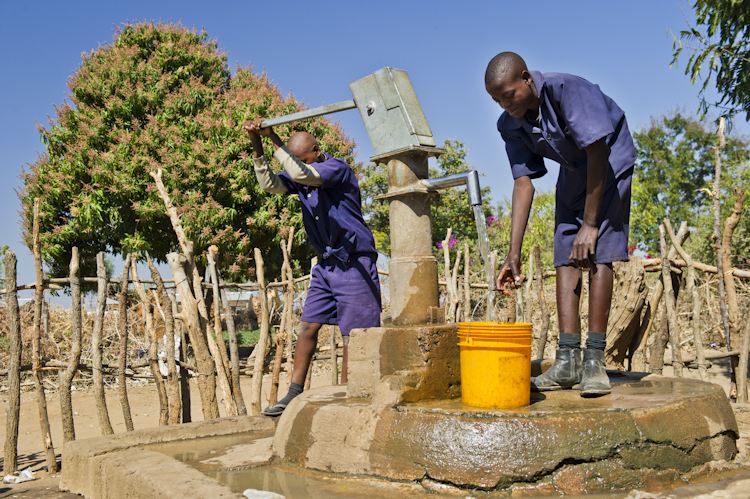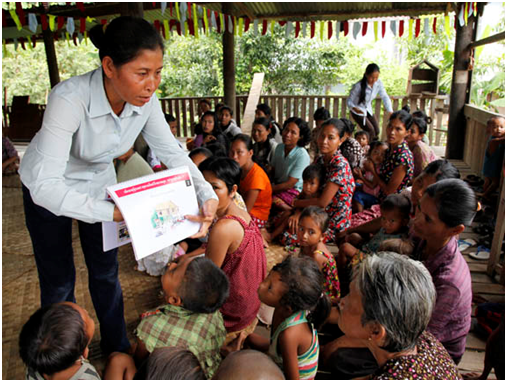The ripple effect: How WASH policies help build healthy communities
|

Think about all the ways you used water in your daily routine this morning. You probably showered, brushed your teeth, used the toilet, washed your hands, all before making a cup of coffee with water whose safety you assumed without question. It is easy to forget that we didn't always have such immediate access in the United States.
As we began to learn that these simple precautions kept us healthy, and in extreme cases, kept highly contagious diseases from decimating entire communities, this evidence informed our policies: today, businesses and schools require public restrooms, and urban infrastructure must meet pre-determined health standards for waste and sewage management. Prioritizing public access to safe drinking water, clean toilets, and hand washing facilities lead to laws that protect us daily, whether or not we realize it.
As a global health advocate, I believe in the power of policy. Policies can seem like pieces of paper tucked away on a shelf until we stop to consider how much they shape the fabric of our everyday lives. And I believe one of the most practical ways to promote healthy families and communities is through investment in safe drinking water, sanitation, and hygiene (WASH).
Our common need for WASH begins as soon as we are born, when sanitary conditions prevent infection in already vulnerable groups: mothers and new babies. Access to WASH is particularly vital in the first five years of a child's life, when pneumonia and diarrhea - the leading killer diseases of children globally - pose the greatest threat to underdeveloped immune systems. In fact, if everyone had access to safe water, almost 90% of diarrhea deaths could be prevented.
WASH continues to play a protective role as a child develops. Without it, repeated bouts of diarrhea can threaten physical and cognitive development and exacerbate the effects of malnutrition. Without it, girls sacrifice education - and along with it, many future opportunities - in pursuit of water for their families. So much of a person's - so much of a nation's - ability to survive and thrive is contingent upon access to WASH.

In Camobodia, a village health volunteer educates mothers about basic hygiene practices.
In these ways and others, investments in WASH bolster broader global health efforts. For example, PATH's diarrheal disease programs in Cambodia, Kenya, and elsewhere show that an integrated prevention and treatment approach yield the greatest results. In fact, the demonstrated value of incorporating WASH activities into these programs helped convince policymakers in these countries to include WASH as a key component of their national diarrheal disease policies.
Every $1 spent on WASH yields a $4 return on investment, and the Senator Paul Simon Water for the World Act represents an opportunity to stretch our dollars even further, all without spending extra money. It's about working with what we have to improve coordination, target resources to the areas of most need, develop robust monitoring and evaluation systems to ensure sustainability, and integrate WASH with complementary programs like global health.

Staff from PATH's Washington, DC office joins the global toast to water.
I believe in policy, and I believe in the power of advocates to shape policy. Social media gives us unprecedented potential to spark change from our homes and workplaces. This month, raise a glass with PATH and others and say #cheerstoH2O in a virtual, worldwide toast to celebrate World Water Day and create momentum around the Water for the World Act.
When we toast, we say, “To your health.” And when it comes to water, I can't think of a more appropriate sentiment.
Photo credits: PATH














